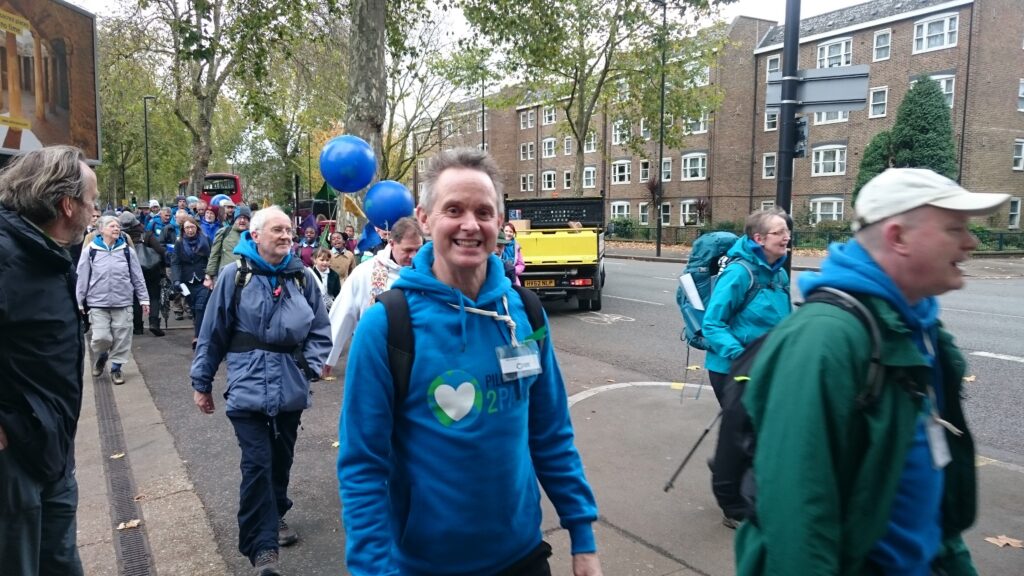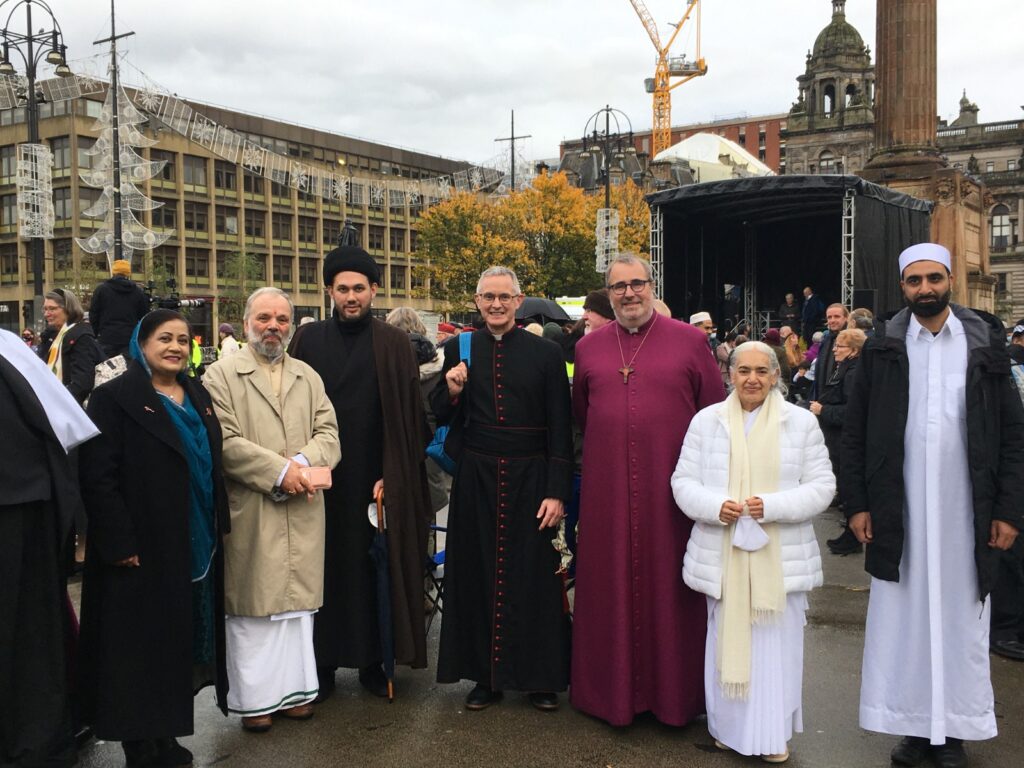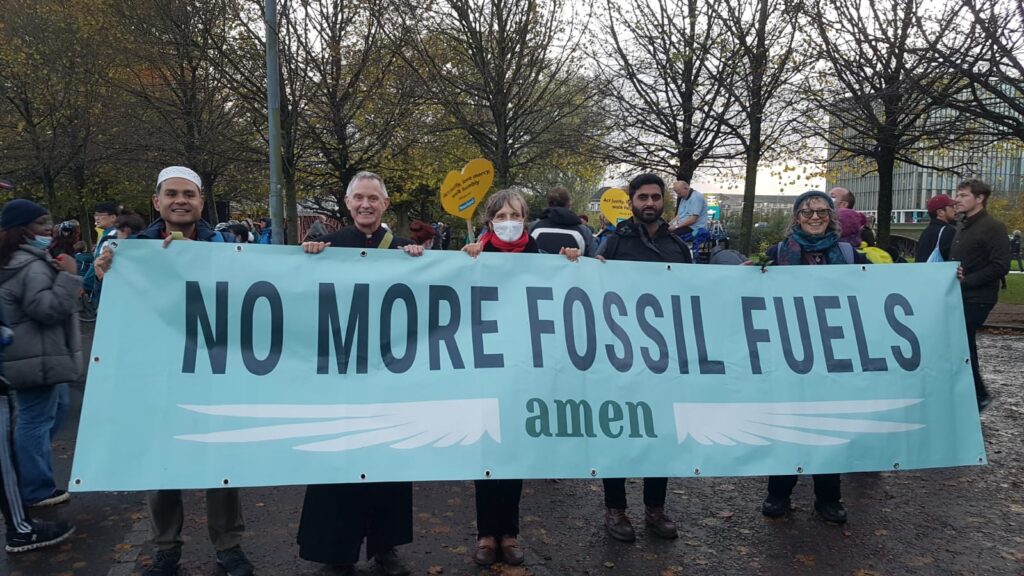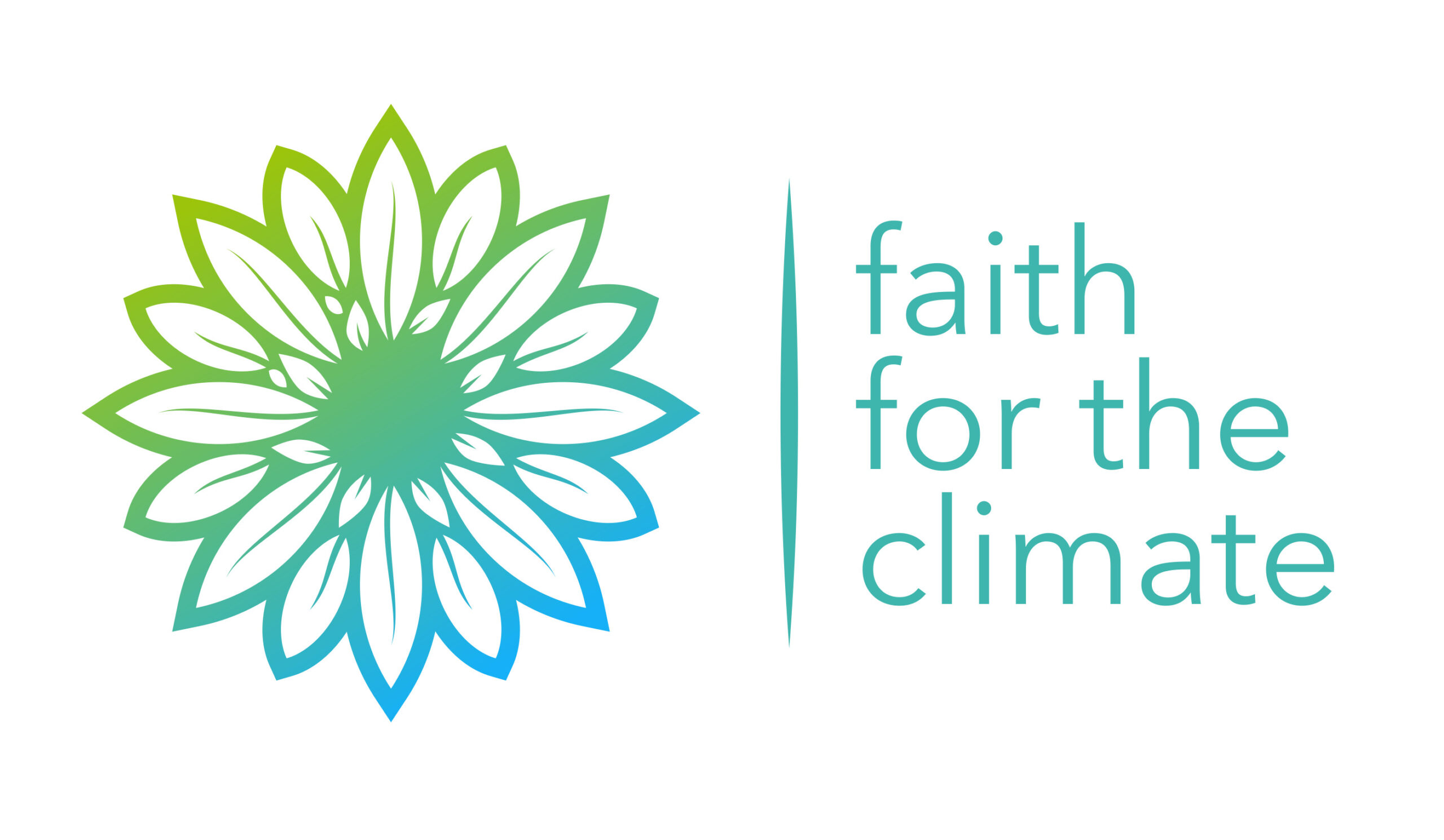COP26: Was It All Worth It?

We continue our series of personal reflections from core members of the Faith for the Climate team on their experiences at COP26 as part of our year-end roundup. This one’s from our founder and chair, Canon Giles Goddard. Giles is Vicar of St John’s Church, Waterloo, London, which hosts the annual Waterloo Festival and is closely involved in the South Bank arts scene. St John’s is noted for its work on climate change, inclusion and interfaith relations. Giles is a member of the Church of England’s General Synod and the Environment Working Group. His book, Space for Grace: Creating Inclusive Churches, was published by Canterbury Press, and Giles often contributes articles to Critical Muslim, the flagship quarterly publication of the London-based Muslim Institute.
COP26: Was it all worth it?
Eighteen months of preparation. A new coalition of faith groups, called the COP Faiths Task Group, later renamed Make COP Count. Increasing Faith for the Climate’s staff team by a third for the whole of 2021. Newsletters, panels, public events, a vigil in Southwark Cathedral attended by 300 people. An avalanche of work in the months leading up to COP. Then travelling on an overfull train up to Glasgow.
Trying to find my way around the city, locating the Airbnb flat which mercifully had not been hugely increased in price, working out how the Blue Zone and the Green Zone worked, getting accreditation, grabbing food on the go, fitting too many discussions into too small a space, trying to understand the implications of the communiques as they were released – the whole COP experience was, to choose one word, overwhelming.
Was it worth it?
In one way, the answer to that question is an undoubted ‘yes.’ I was greatly heartened by the close working relationships between different faith groups and organisations which developed in the years running up to COP26. We had laid the foundations back in 2014 when we set up Faith for the Climate. The Pilgrimage to Paris and the capacity building work which we had done since had created a strong sense of teamwork. As we got closer to the initial date of November 2020, before COP26 was postponed to 2021, the discussions among different groups – Christian Aid, Islamic Relief, CAFOD, Quakers in Britain, Tearfund, and Churches Together in Britain and Ireland and many others – quickly crystallised.
The postponement of COP26 due to COVID gave us an extra year to plan, and I was glad of that time. More groups joined what we renamed the Make COP Count coalition, including Hindu Climate Action, the Eco Dharma Network, the Fellowship of Reconciliation, and many others. It helped us to focus on what we could do together. It helped us to refine our shared asks of the COP process. We agreed on two overarching demands: first, that new funding should be made available for the loss and damage caused to poorer nations by climate change, and second, that all public subsidies for fossil fuels should be brought to an end.
This emphasis on climate justice quickly gained traction with our member groups, and we were glad to be able to raise it at high level meetings in advance of the conference itself.

And then, when so many of those of us who had worked closely together arrived in Glasgow to greet our Scottish and international colleagues, we already had strong friendships and working relationships on which to build. So, the shared events – including the arrival of the Rise to the Moment relay on the Saturday and the interfaith vigil in George Square on the first Sunday – felt like a real time of gathering and intensity as we began the fortnight.
The Talanoa Dialogue which immediately followed the interfaith vigil was a gathering of 12 different faith voices. It set the scene for the close collaboration in the days to come. The voice of faith groups, calling for climate justice, was loud and clear, and we amplified and reflected the calls by our colleagues in secular NGOs. We were there at the heart of it all. We have been told by the delegates to COP26 that the voice of the protesters, quietly praying outside the gates to the Blue Zone, lighting candles for loss and damage, holding up a banner saying “No More Fossil Fuels, Amen” was important and was heard as they wrestled with the negotiations.

But in another way, it feels as though all the work we did was not worth it. The outcome of the conference, although not as bad as we feared it might be, was nowhere near as ambitious as it needs to be. And it is not at all clear that even the commitments made in Glasgow will be seen through.
The UK has the Presidency for the rest of the year, and many people are hoping and praying that COP26 President Alok Sharma will be able to build on his work during 2021 to achieve major outcomes in 2022.
Eyes are now moving towards Egypt, where COP27 will be held. Our work is not yet done. As Kamran Shezad says in his reflection here, we need our faith establishments to:
1) Reinvigorate the teachings of scriptures on the care of creation, in their teachings, talks and sermons
2) Actualise these teachings by promoting Earth stewardship and sustainable living to their congregations and communities
3) Encourage the greening of places of worship, community centres, and spaces where people gather, so that they minimise the impact on natural resources
4) Use their platforms to give a voice to activists, to call for a just transition, and to stand up for the rights of the vulnerable people most affected by the impacts of climate change (including young people, women, children, the poor, refugees and asylum seekers)
5) Use their influence to hold local authority and government agencies to account on climate and biodiversity targets
6) Work with other groups and individuals, both faith and non-faith, who are committed to this cause.
Let’s commit to doing this in 2022, so that the catastrophe we all fear can be seen off, and the future can be one of justice and hope.
Canon Giles Goddard, 15 Dec 2021
Chair, Faith for the Climate
Read Rosh Lal’s reflections
Read Rachel Mander’s reflections
Read Kamran Shezad’s reflections

